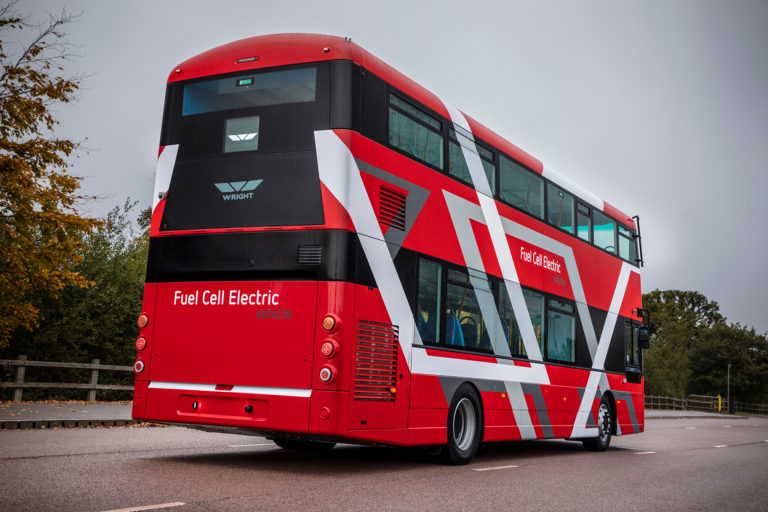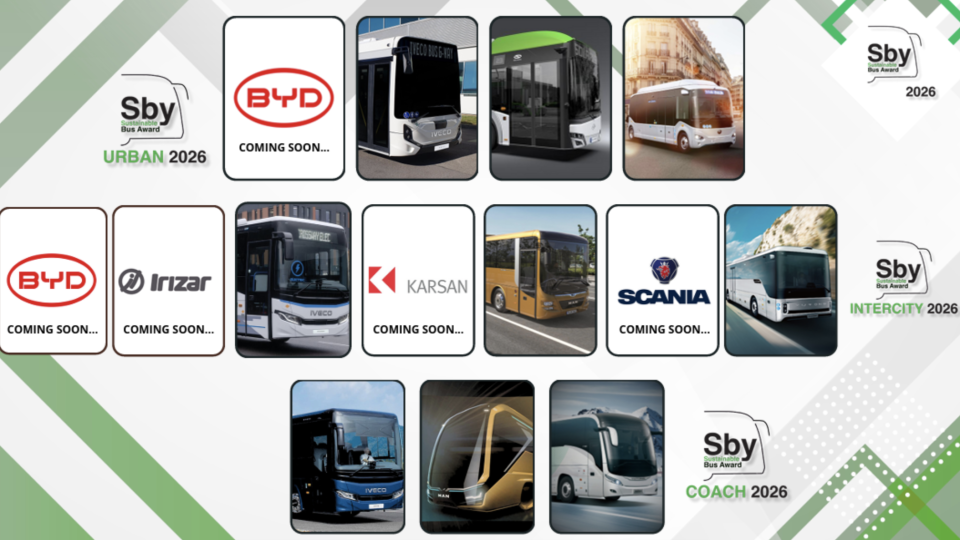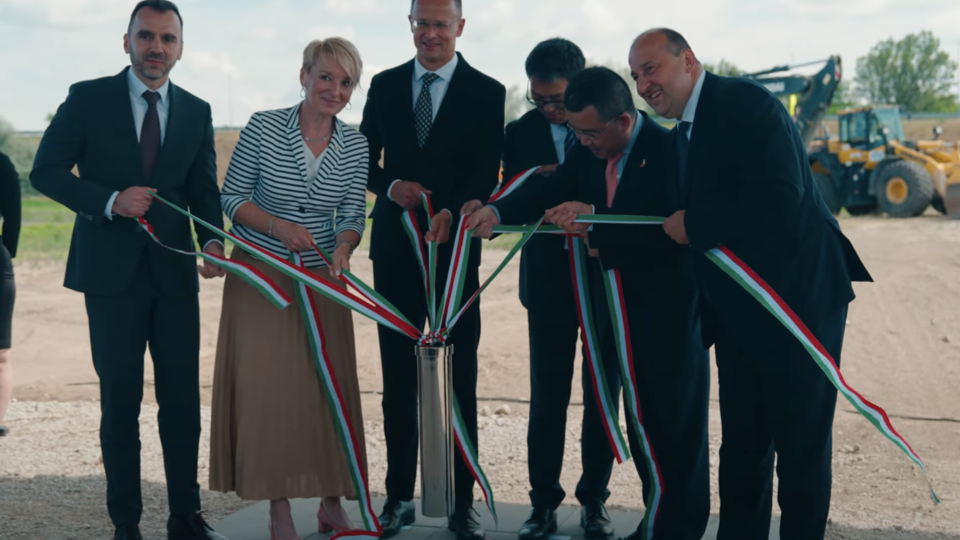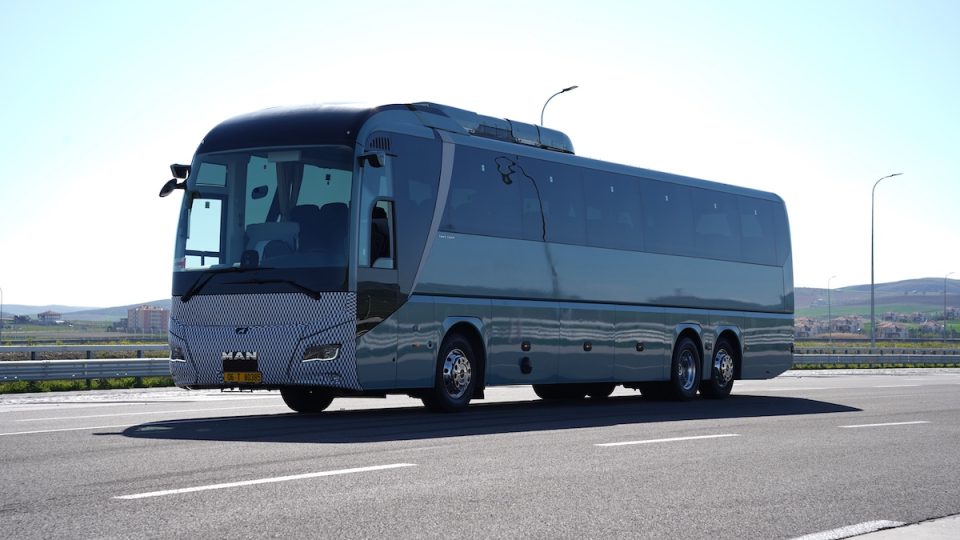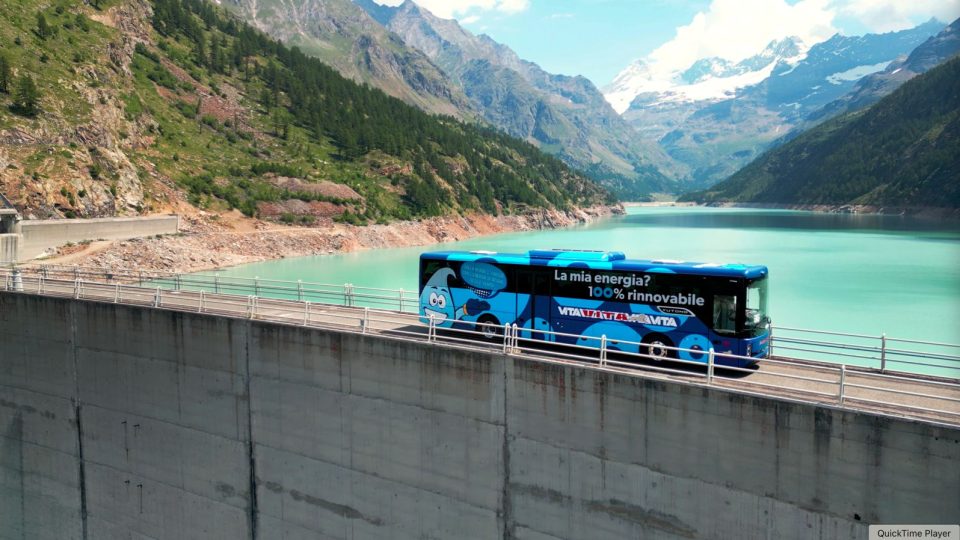«It’s time for large deployment of H2 buses in Europe». Interview with Bart Biebuyck (FCH JU)
Hydrogen is back on the spotlight. Although number are still small, more manufacturers are launching fuel cell bus products and interest is growing at a European level. Recent agreements between Volvo – Daimler and Iveco – Nikola for long-distance trucks pave the way for the future development of fuel cell coaches (the development of the […]
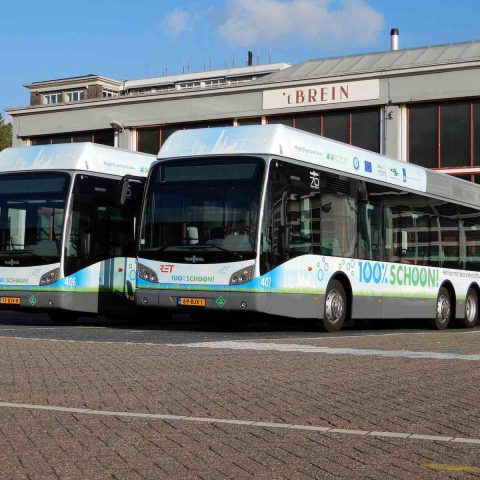
Hydrogen is back on the spotlight. Although number are still small, more manufacturers are launching fuel cell bus products and interest is growing at a European level. Recent agreements between Volvo – Daimler and Iveco – Nikola for long-distance trucks pave the way for the future development of fuel cell coaches (the development of the first one is underway). 360 hydrogen buses should be on the road in the next year in the framework of JIVE 1 and JIVE 2 projects, co-funded by FCH JU. And costs? The first hydrogen bus in 2010 had a price of 1.8 million euros. Today, the H2Bus Consortium has set the goal of reducing that figure to 650,000 euros.
We discussed the topic with Bart Biebuyck, Executive director of the Fuel Cells and Hydrogen Joint Undertaking (FCH JU) and previously Technical Senior Manager at the Fuel Cell department of Toyota Motor Europe. FCH JU is public-private partnership supporting research, development and demonstration in the field of hydrogen technologies in Europe. Its members are the European Commission, fuel cell and hydrogen industries represented by Hydrogen Europe and the research community represented by Hydrogen Europe Research.
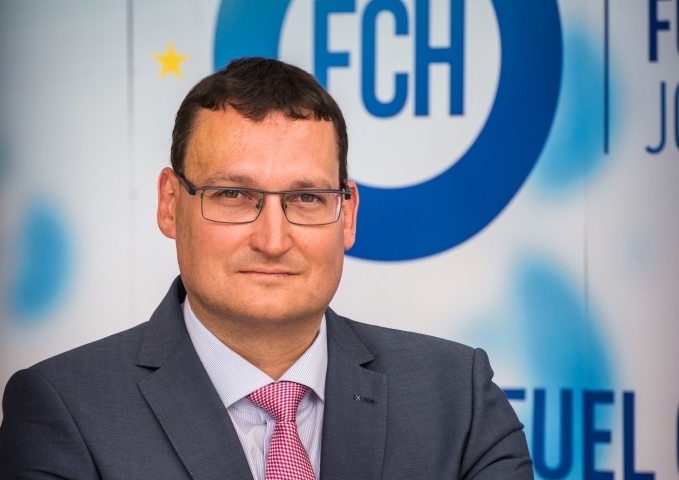
FCH JU: no decarbonization without hydrogen
The German government just issued an important strategy aimed at the development of hydrogen projects. And hydrogen should play a protagonist role in the European Green Deal. Hydrogen has been in the spotlight of several projects, in the bus field, even 10 years ago. And now we are witnessing a ‘resurrection’ of the interest in this technology. What happened?
«Hydrogen was in the spotlight, with regards to other fields, long before ten years ago. But the technology wasn’t yet ready for commercialisation. In the last 10 years a lot of advancements have been achieved concerning durability and efficiency through the projects funded by the FCH JU. And there are some new factors in the political landscape. First, the Paris agreement: after that everyone has been looking at how the CO2 is produced. The conclusion was that pure electricity is not enough to decarbonize our society. We need another means, we need molecules. And the best molecule is hydrogen. The European Commission with the Green Deal has put forward a target of 50 to 55 per cent reduction of the CO2 by 2030. All the scenarios that have been simulated say that without hydrogen there is no chance to make it. Hydrogen will play a role in the industry: steel, refineries, fertilizers. Today we produce in Europe already ten million tons of hydrogen per year. Just 4 per cent is green. It means that first we have to green the hydrogen production. Anyhow, in the scenarios for Europe carbon-neutral continent in 2050 is calculated that we have to produce 70 million tons of hydrogen. We have a lot of work in front of us. And here we come to transportation…».
Please.
«Without hydrogen we can’t decarbonize heavy-duty transportation. There are projects underway to decarbonize aviation for example. And just think about trains: it makes more sense to replace the trains that still run on diesel with hydrogen-powered trains for long tracks and few passengers.
In the truck sector, we can’t do everything with pure batteries. Volvo and Daimler, Iveco and Nikola agreements go in the same direction. For truck OEMs is pretty clear that they need hydrogen to decarbonize their sector and achieve the target that European Commission has put forward for 2030. When we come at buses, we see a complementarity with battery-buses. It depends on the use case and the local situation».
Bart Biebuyck: hydrogen buses one of our main focus
Which is the place of the bus-related projects in the history of your organization?
«After FCH JU was born in 2008 we decided that hydrogen buses were one of our main focus, because city centers need to decarbonize and improve air quality. In 2010 we started with the first hydrogen bus, that had a cost of 1,8 million euros. Too much. The next step was related to standardization and scaling up in order to reduce the costs. In the next two years I believe we will see hydrogen buses to be, in some cases, even cheaper than battery-electric buses».
Everything started with fuel cell city buses, but today we see much of the attention is moving on intercity buses or long-distance coaches…
«Yes, but our focus so far has been on city buses because local government are involved: at the first stage of deployment of new technologies you need public support. And in the city there is a need for decarbonization and reduction of air pollution. Now much attention is on coaches, it’s true. I think hydrogen for them is a great benefit for long routes and short refueling times. But we couldn’t start with coaches, as the market is very small. And they are operated by private companies. We are starting right now: this year we had the first call for proposals to develop a fuel cell coach. The result will be announced early 2021. There are big challenges: the system integration is totally different, as the coach need luggage space».
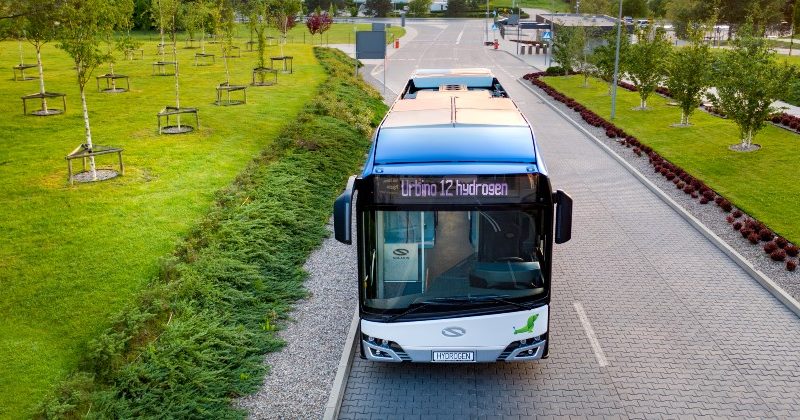
Bart Biebuyck: mass scaling of H2 coach in 2025 – 2030
On the other hand, at the product development level, there are more possibility of integration with trucks…
«Correct, they can use similar platform, there is a huge amount of overlapping in the development of trucks and coaches. We are going to see the first hydrogen coach, as a demo, in 2022 – 2023. The mass scaling could be between 2025 and 2030».
On the presentation of JIVE projects we read that «combined, the JIVE projects will deploy nearly 300 fuel cell buses in 22 cities across Europe by the early 2020s». Today, according to our figures, we have nearly 100 hydrogen buses in operation in Europe, 28 registered in 2019. When do you expect the target of the projects to be reached? How many vehicles are today in the order books?
«We have around 360 buses funded today. 300 units are for JIVE 1 and JIVE 2. And then we have other projects, as 3Emotion and others. Our first project was CUTE, we moved from the few buses of the first projects to hundreds of buses. With JIVE 1 and JIVE 2 we have been working with joint procurement by cities, in order to aggregate demand and publish tenders for larger amount of buses, and thus reducing costs. Today, we have 92 buses ordered or delivered within JIVE 1 and 90 on 152 within JIVE 2. There are 182 vehicles ordered or delivered or 62 per cent of the total. According to our plans, all the orders must be concluded by the end of this year. And all the buses must be delivered by the end of 2021. But there is another important project on fuel cell buses underway…».
Please…
«H2BusEurope is supported by the Connecting Europe Facility program and has the target to reach one thousand fuel cell buses deployment. They got funding for the initial 600 buses. And the price is set at less than 375,000 euros for a 12-meter standard bus, so cheaper than a battery-electric bus».
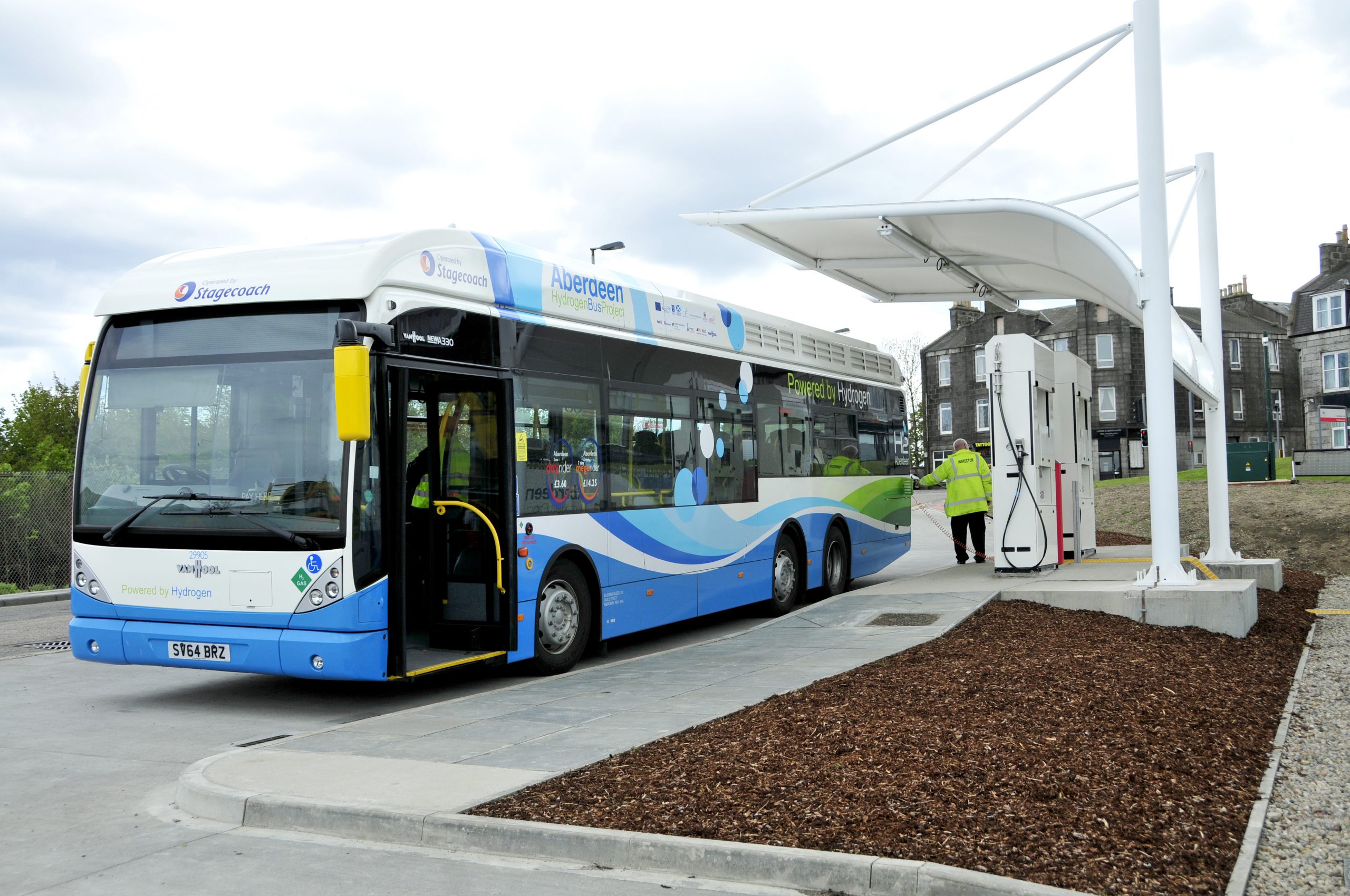
Fuel cell buses and the case for commercial viability
Today fuel cell buses are only deployed in the framework of funded projects. The purchase cost is an important barrier. When do you think hydrogen buses will become commercially viable? Do you have any forecast with regards to TCO breakeven point compared to ICE buses?
«I don’t think that such a comparison could be a fair comparison. It is normal that FCBs are more expensive. It’s a very recent technology, it should grow up to reach maturity. I don’t see TCO of hydrogen buses to be equal to diesel in the short term. In 2025 it could be very close.
Also, some TCO models don’t take into consideration the fact that battery-electric buses need more space and more infrastructures. One of the best benefit of hydrogen buses is scale. If you operate large fleets, the TCO of hydrogen buses could easily be cheaper: one hydrogen refueling station is shared between many buses. Building a station for 10 buses makes the TCO much higher»
But a crucial issue is the following: if we really want to keep producing zero emission buses in Europe, TCO might not be reduced so fast».
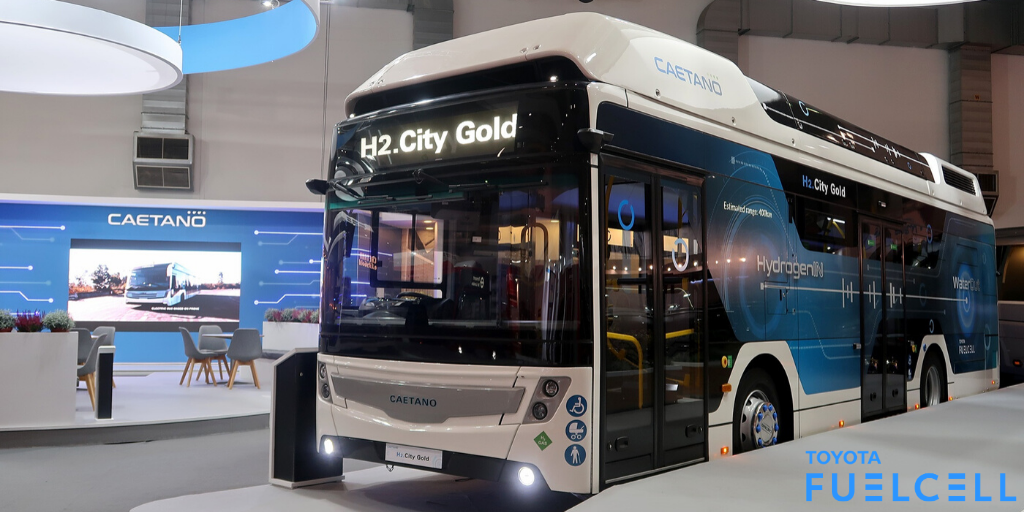
«Hydrogen technology as a way to keep production in Europe»
Can you be more specific?
«We should consider if we want become dependant on foreign producers, that have cheaper products today. I believe that we should keep bus manufacturers alive in Europe. Today all hydrogen buses funded within European Commission programs are produced in Europe. We want these buses to be produced at competitive prices in Europe. A fuel cell bus has much more parts than a battery-electric bus, it is more like a ICE vehicle in number of parts. It means that if we keep the supply chain in Europe, we will generate or at least keep the existing jobs. If we move towards another technology, as battery-electric, vehicles need much less parts, and the most important one is the battery. Which is not supplied from Europe. From a social and economical perspective we really need to push hydrogen buses in Europe in order to create jobs in Europe in this decarbonization stage».
Just a few European manufacturers currently produce fuel cell buses. I count 4-5 suppliers. Poor competition ends up in higher prices, as underlined also by VDV in a statement of a few days ago. How do you see this situation?
«Today we have 12 OEMs working on fuel cell bus projects. Each one is at a different stage».
Which will be, with regards to buses, the kind of services that according to your forecasts will be most suitable to fuel cell operations? Flixbus announced a project on fuel cell and Mercedes today targets hydrogen for the long-distance transportation. Are we seeing hydrogen buses more in the cities, in the Class II market or on the coaches?
«In the north of Netherlands they operate a combination: battery-electric buses for short mileage; hydrogen buses for longer range. These technologies are complementary. You must consider which is the cheaper for the service you need to provide. Anyhow, the TCO calculations must be done with large numbers of vehicles, not based on 5 buses. In general, I see a trend towards the establishment of battery-electric buses with fuel cell range extender, mainly driven by TCO calculations. We have learnt this from our experience. I believe we will see in future a mix of range extender and pure fuel cell buses as a solution».
Bart Biebuyck and the case for fuel cell bus efficiency
The president of a well known bus (and e-bus) manufacturer, in an interview of some time ago, when asked if there were plans towards hydrogen vehicles development, answered to me: «Today and for the foreseable future we need electricity to produce hydrogen, and there are energy losses. With the same amount of electricity that you use to produce hydrogen to run one hydrogen bus, you can run two battery-electric bus. The energy efficiency of hydrogen production’s process is inferior than the direct use of electricity». Which would be your answer to such a consideration?
«I would answer that we must look at efficiency on the energy system level. There is no doubt that when you charge your bus at a charging station with a normal charger and do the efficiency calculation, a battery-electric bus results to be much more efficient. But we must look at the whole chain, considering for instance the recycling factors: just think at the energy required for recycling a component as the battery, or the energy to ship components from Africa, China and Europe. Also, if you consider fast charging systems, the best efficiency today reachable is 70 percent. With electrolysis we can reach 81 percent of efficiency. In one word: you have to look at the efficiency of the whole system».
We read on the website that «The FCH JU under Horizon 2020 has a total budget of €1.33 billion, provided on a matched basis between the EU represented by the European Commission, industry, and research». How much money is invested in bus-related projects?
«I would say that nearly 120 million euros of public fundings were invested in the last 12 years on bus-related fuel cell projects».
Which is the next challenge?
«I believe that hydrogen bus sector needs to look for innovative maintenance schemes. It is something that we need to further explore. We need new ways to optimize maintenance costs, monitoring the lifespan of the stacks. This is our next challenge».
